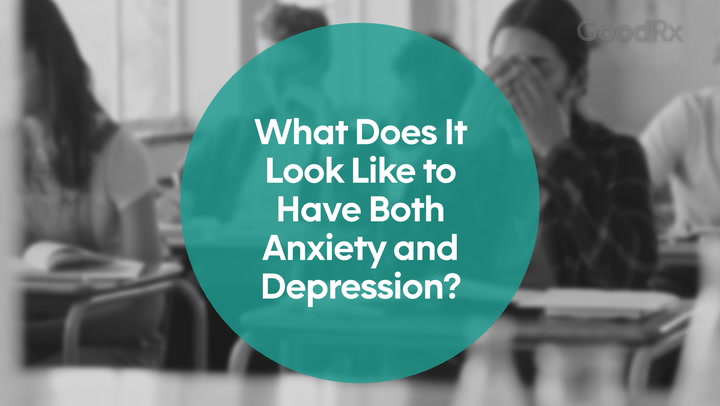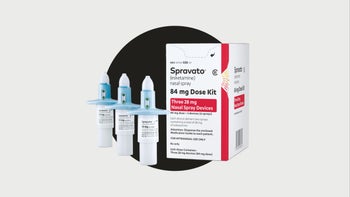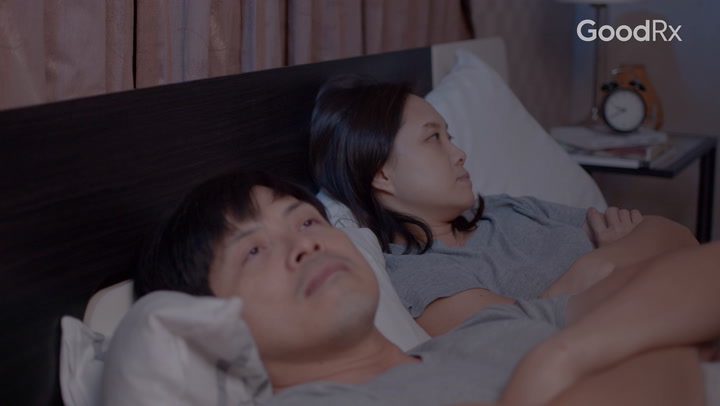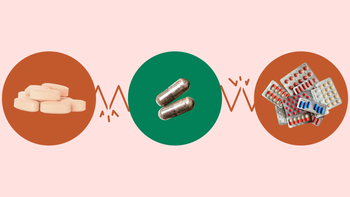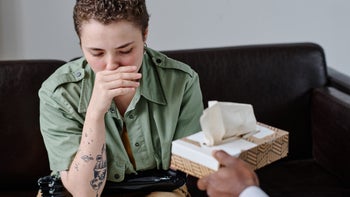
Medications and Other Treatment Options for Major Depressive Disorder
Key takeaways:
Clinical depression — also known as major depressive disorder — is a common mental health condition.
There are many different treatment options for depression, including therapy and medication.
Much of the time, depression can be successfully treated. It’s important to get care if you’re experiencing symptoms.
Table of contents

Clinical depression, also called major depressive disorder or depression, is one of the most common mental health conditions in the world. It’s estimated that 1 in 5 people in the U.S. will experience depression over the course of their lifetime. And when you have depression, it can affect your life in many different ways — including your physical health, your close relationships, and your job. Fortunately, treatment can help.
Let’s take a closer look at medications for major depressive disorder, as well as therapy and other options.
What is major depressive disorder (MDD)?
Depression is a mental health condition where you feel numb, empty, and sad most of the time. It can also make you less interested in your normal activities, and take a toll at work, at home, and in your relationships.
Search and compare options
It’s normal to feel sad sometimes — but major depressive disorder is much more than that. It impacts your daily life and can lead to serious symptoms like self-harm or suicide.
What are the symptoms of major depression?
Major depression can cause many different symptoms. These include:
Feeling sad, hopeless, or empty
Feelings of guilt or worthlessness
Loss of interest in activities you used to enjoy
Appetite changes, and weight gain or weight loss
Difficulty sleeping or sleeping more than normal
Feeling tired, or lack of energy
Physical restlessness, or feeling heavy and weighed down
Difficulty concentrating or memory problems
Having thoughts of suicide or thinking you would be better off dead
To be diagnosed with depression, you need to have at least five of these symptoms, for at least 2 weeks. But in reality, depression can look different in different people.
Some people experience mild depression, with fewer symptoms. Other people have more severe depression. And some people also have physical discomfort or pain as a result of depression.
What medications can be prescribed for major depressive disorder?
There are many medications that can help with depression. These typically include antidepressants, mood stabilizers, and atypical antipsychotics. You and your healthcare professional will work together to find the right medication — or combination of medications — for your unique symptoms.
Here are some of the options.
Selective serotonin reuptake inhibitors (SSRIs)
When it comes to treating depression, SSRIs are a good first choice for many people. They’re also used to treat many other mental health conditions, like anxiety disorders and post-traumatic stress disorder (PTSD). Examples include:
escitalopram (Lexapro)
fluoxetine (Prozac)
sertraline (Zoloft)
citalopram (Celexa)
paroxetine (Paxil)
Serotonin and norepinephrine reuptake inhibitors (SNRIs)
SNRIs are another good first-choice medication for treating depression. Just like SSRIs, they’re also used for many other mental health conditions. And they can be helpful for some types of chronic pain, too. Options include:
duloxetine (Cymbalta)
venlafaxine (Effexor)
desvenlafaxine (Pristiq)
Atypical antidepressants
These are antidepressants that don’t fit well into other categories, because they work a little differently in your body. Examples include:
mirtazapine (Remeron)
bupropion (Wellbutrin)
esketamine (Spravato)
mirtazapine (Remeron)
Atypical antidepressants are often used as an add-on to other medications. But they can also work well on their own for some people. Keep in mind that esketamine is typically only used in people with suicidal thoughts, or if you have treatment-resistant depression (more on this below).
Tricyclic antidepressants (TCAs)
TCAs are an older type of antidepressant. They’re less commonly used because they can come with more side effects than SSRIs and SNRIs. But for some people they can be a great option. Examples include:
amitriptyline (Elavil)
nortriptyline (Pamelor)
doxepin (Sinequan)
desipramine (Norpramin)
Monoamine oxidase inhibitors (MAOIs)
Monoamine oxidase inhibitors (MAOIs) are another type of older antidepressant. Options include:
selegiline (Emsam)
tranylcypromine (Parnate)
isocarboxazid (Marplan)
phenelzine (Nardil)
Just like TCAs, they’re not usually a first-choice medication because of their side effects. You also can’t eat certain foods while taking them, which can be a hassle. But again — for some people, MAOIs are a good match.
Mood stabilizers and atypical antipsychotics
Mood stabilizers and atypical antipsychotics are two other types of medications that are used to treat depression. They’re often used together with antidepressants, such as SSRIs or SNRIs. Your healthcare professional might suggest adding one of these if you’re not getting enough relief from an antidepressant alone.
Good to know
Sometimes a medication won’t be helpful enough at first, or it may have side effects you don’t like. But it’s a good idea to give the medication enough time to see if it works for you. It may take up to 8 weeks for your symptoms to start getting better.
It’s also worth mentioning that antidepressant medications shouldn’t be stopped abruptly. This can lead to discontinuation symptoms like nausea, headaches, trouble sleeping, and dizziness. Talk with your healthcare professional if you’re considering stopping your medication — they can help you create a plan.
And finally: Be aware that some depression medications may increase your risk for suicidal thoughts, especially in young people (children or teens). If this happens, get emergency help. Call the National Suicide Prevention Lifeline at 988 or text “HOME” to 741-741 to reach the Crisis Text Line.
What types of therapy can be used for depression?
Therapy can be an essential part of treatment for major depression, too — either on its own, or together with medication. Sometimes, therapy may help within just a few weeks. Or, it can take longer depending on your situation.
There are different types of therapy that can help to treat depression, including:
Interpersonal therapy (IPT)
Psychodynamic psychotherapy
Supportive therapy
Mindfulness-based cognitive therapy (MBCT)
When it comes to a therapist, it’s important to find the right fit for you. There are different ways to find a therapist, such as searching online or asking for recommendations. You can do therapy online over video, too.
In some cases, therapy may include other people. For example, family or couples therapy can often be helpful, especially if depression has affected your relationships. And group therapy can be a great way to connect with other people going through similar experiences.
What treatments are available for treatment-resistant depression?
Treatment-resistant depression (TRD) is when your depression symptoms don’t go away completely, even after you’ve tried a couple of different medications. And it’s pretty common, too. In fact, TRD may happen in as many as 1 in 3 people with depression.
But having TRD doesn’t mean you’re out of options. It just means you might have to try a different type of treatment to get relief. Here are some of the treatments that can help if you have TRD:
Switching to a new antidepressant: Changing to a different type of antidepressant can help some people with TRD.
Adding on a second or third medication: This could mean adding another antidepressant, or an antipsychotic medication. Thyroid hormone and lithium are options for some people, too.
Adding on therapy: If medications haven’t worked on their own, adding on therapy can sometimes get results.
Trying brain stimulation therapies: These are medical procedures that stimulate your brain. Examples include transcranial magnetic stimulation (TMS) and electroconvulsive therapy (ECT).
Using esketamine and ketamine: Esketamine (Spravato) is an FDA-approved nasal spray for treating TRD. Ketamine is a similar medication that’s often used off-label to treat depression, including TRD.
Taking olanzapine/fluoxetine (Symbyax): Symbyax is a combination medication made of two medications: olanzapine and fluoxetine. It’s also FDA-approved for treating TRD.
There are also new treatments that may grow in use over time, such as psilocybin (commonly known as magic mushrooms). This is a psychedelic compound that shows some promising benefits in treating depression — including TRD. But more research is needed before we can say for sure how well it works.
What supplements can help for major depressive disorder?
Some over-the-counter (OTC) supplements may help with depression. These include:
St. John’s wort: This is an herb that may be effective for depression. But it has side effects and it can interfere with other medications you’re taking. It can also be risky to mix with some prescription medications, including certain antidepressants.
Omega-3 fatty acids: These are “good fats” that are important for brain health. There’s some evidence that taking omega-3 may help with depression.
L-methylfolate or folic acid: L-methylfolate is the active form of folic acid, a type of vitamin B. It’s not clear how well folic acid works on its own for depression, but it may be helpful as an add-on to antidepressants.
So far, there’s not enough evidence that any of these supplements work better than medications and therapy. And remember: It’s always a good idea to talk with your healthcare team before taking a new supplement. OTC supplements may have side effects, or interact with your other medications.
What lifestyle changes might help treat major depressive disorder?
There are some important lifestyle changes and daily habits that can help manage your depression symptoms. These include:
Exercise: Exercise can help reduce depression symptoms, especially when combined with medication or therapy. Exercise doesn’t have to be complicated. Even simple things can help, like a short walk around the block or playing basketball in your driveway.
Healthy diet: A nutritious diet full of fruits and vegetables may help with depressive symptoms. It’s especially important to get enough vitamins and minerals, including vitamin B12, folate, and magnesium.
Sleep: Many people with depression have trouble sleeping. Working with your healthcare professional to get enough good quality sleep can help your other depression symptoms get better, too.
Mind-body therapies: Mind-body activities like yoga, tai chi, and meditation can also be helpful for people with depression. They’re also good for other things that can go hand-in-hand with depression, like pain, stress, and anxiety.
Light therapy: Sitting in front of a special bright light box can help with some types of depression, especially seasonal affective disorder.
Can depression be cured?
It’s hard to say. Technically, depression isn’t an illness that can be cured. But fortunately many people do fully recover from major depression — especially with treatment.
When it comes to depression, recovery is different for everyone. It depends on many things, including:
Your symptoms
Your family history
Whether you’ve had an episode of depression before
Your overall mental and physical health
Your resources and social support
For some people, depression will go away and never come back. But for other people, symptom episodes will come and go over time. In fact, at least 1 out of every 2 people will have another episode of depression sometime in their life. And the more episodes you have, the more likely it is you’ll have another one in the future.
Where can you find healthcare professionals for depression treatment?
If you think you may have depression, it’s a good idea to talk with your healthcare team. You can start with your primary care provider (PCP). They might be able to get you started on medication, or provide a referral to a qualified mental health professional.
If you don’t have a PCP, or aren’t sure where to start, ask friends and family for recommendations. If you’re covered by health insurance, you can also use your plan’s healthcare professional directory to look for a specialist in your area.
You can also start your search for mental health professionals online. Many of them offer either in-person or telehealth appointments. Check out the following databases:
Gaylesta (LGBTQ therapists)
InnoPsych (BIPOC therapists)
Open Path Psychotherapy Collective (low-cost therapy)
You can also call the Substance Abuse and Mental Health Services Administration (SAMHSA) for more resources near you at . The National Alliance on Mental Illness (NAMI) also has a helpline you can call at 1-800-950-NAMI (6264).
The bottom line
Depression is one of the most common mental health conditions. It will likely impact you or someone you love at some point in your life. While it may be scary or overwhelming to seek help for depression, it’s important to know that many treatment options are available. Not only are there many medications, but there are also nonmedication options and therapies that can help. Depression is treatable, and many people will achieve remission and remain symptom-free.
Why trust our experts?



If you or someone you know is having thoughts of suicide, you’re not alone and help is available. Call the National Suicide Prevention Lifeline at 988 or text “HOME” to 741-741 to reach the Crisis Text Line.
References
Altaf, R., et al. (2021). Folate as adjunct therapy to SSRI/SNRI for major depressive disorder: Systematic review & meta-analysis. Complementary Therapies in Medicine.
American Psychiatric Association. (2019). Depression treatments for adults.
American Psychiatric Association. (2020). What is depression?
Eaton, W., et al. (2008). Population-based study of first onset and chronicity in major depressive disorder. Archives of General Psychiatry.
Hasin, D. S., et al. (2018). Epidemiology of adult DSM-5 major depressive disorder and its specifiers in the United States. JAMA Psychiatry.
Institute for Quality and Efficiency in Health Care. (2020). Depression: How effective are antidepressants? InformedHealth.org.
Kvam, S., et al. (2016). Exercise as a treatment for depression: A meta-analysis. Journal of Affective Disorders.
Liao, Y., et al. (2019). Efficacy of omega-3 PUFAs in depression: A meta-analysis. Translational Psychiatry.
National Institute of Mental Health. (2024). Brain stimulation therapies.
National Institute of Mental Health. (2024). Psychotherapies.
Saad Al-Harbi, K. (2012). Treatment-resistant depression: Therapeutic trends, challenges, and future directions. Patient Preference and Adherence.
Sneed, A. (2022). Can supplements really help with depression or anxiety? The New York Times.
For additional resources or to connect with mental health services in your area, call SAMHSA’s National Helpline at 1-800-662-4357. For immediate assistance, call the National Suicide Prevention Lifeline at 988, or text HOME to 741-741 to reach the Crisis Text Line.















